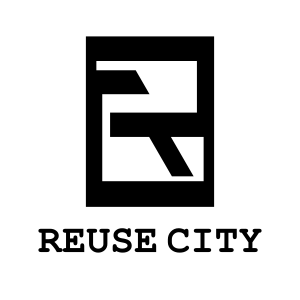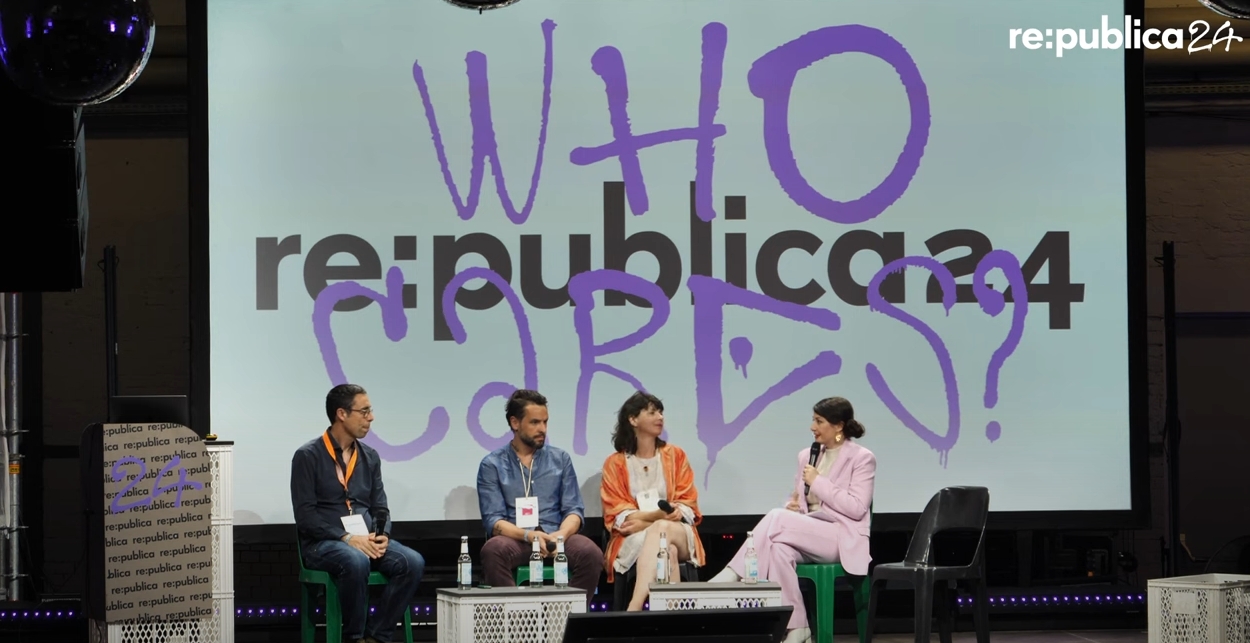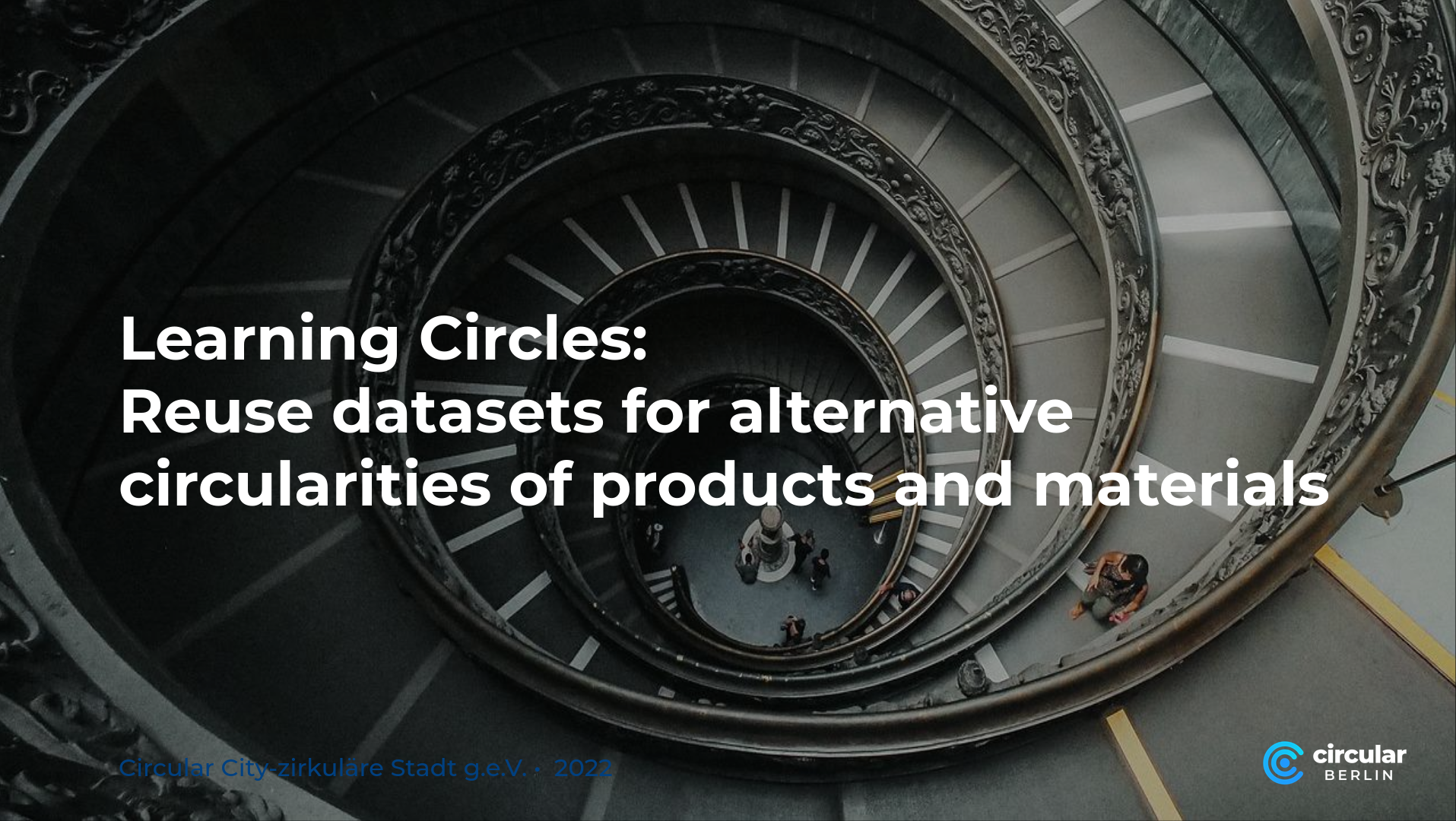
This wiki hosts documentation of the projects developed by the Reuse City studio. It was initially created by Dr Felipe Schmidt Fonseca as open documentation of his doctoral investigation at the OpenDoTT project. It was later expanded to document subsequent projects.
Start browsing here:
A more detailed view of the website structure can be found here.
¶ Featured
¶ Generous Cities: commons-based handling of excess materials
- Paper based on the thesis intro and submitted to the Livable Cities Conference. It was included in the ebook Resilient Cities in a Changing World (ISBN 978-1-0369-0933-8). Full text available here.
A common way to describe the contemporary globalised world is that it is organised chiefly around industrial production. That point of view, although insufficient to provide a deep understanding of the many economic, political and social dynamics at play, is prevalent in the public opinion. The mere fact that it has uncritical wide adoption by the media and the general public has many consequences. Crucially, it makes it all but inevitable to accept that the global economy depends on an increasing extraction of raw materials, their transformation into products, and the distribution of such products to consumers. Contemporary industrial production is, after all, usually structured in such a way that multiple materials are extracted from nature – often in parts of the world distant from one another – and transformed into products through the use of labour, energy and applied knowledge.
That mode of organisation impacts the entire supply chain, but its final section is particularly problematic. It would make sense to assume that the products of industrial production would better stay in use for as long as possible, lest the investment – labour, energy, and knowledge – disappear altogether when products are discarded, or at best recycled. In other words, the resources invested into manufacturing are literally wasted at the end of the product life cycle. The so-called linear mode of industrial production generates increasing volumes of objects that can not be reincorporated into production processes. Such excess materials are largely wasted, despite often still being potentially valuable. Recent policies attempting to increase the rate of recyclable materials' collection address this situation partly, but they cause other sorts of undesirable effects, as will be discussed in this text.
¶ Reuse City studio
In September 2024, Dr. Schmidt Fonseca launches the Reuse City, a studio dedicated to applied research, service design and technology development in the fields of circular economy, right to repair, and zero waste policy. Read more about it in the website https://reuse.city.
¶ Generous Cities - a summary
- Read the summary. Introduction below:
TL;DR:
The concept of generous cities was the central binding element of my PhD thesis produced for the OpenDoTT project (Northumbria University / Mozilla / University of Dundee, 2019–2023). It proposes an alternative framing for the handling of excess materials (things kept unused or prematurely discarded), to overcome the conceptual and practical limitations of a waste management paradigm chiefly focused on recycling. A generous city perspective, in turn, promotes the development of commons-based systems to collectively identify and realise the value of excess materials. It does so through practices of reuse to benefit local communities, organisations, and businesses. The concept borrows elements from diverse fields of knowledge and is aligned with growing awareness of the need to mitigate the impacts of human activity on the planet. The generous city perspective offers a concrete critique of unregulated industrial production guided only by profit extraction under neoliberal capitalism. It promotes conviviality as a basis for the regeneration of social bonds and the creation of more sustainable practices. This text provides an overview of the scenario, motivations, and methods I adopted in my doctoral research, and describes some of its outcomes and potential future developments.
¶ Understanding the Right-to-Repair Movement in the Global North and Global South
- Panel during re:publica24, in Berlin. Video recording available on YouTube (starting on min 46). A post about the panel was published in the GIG website.

¶ Research Datasets
Shortly after obtaining the degree, Felipe presented the research at a "Learning Circles" organised by Circular Berlin. The presentation is focused in some of the design concepts, and is available here: slides (google drive) / video (youtube).

See also more actions of public engagement and outreach during the research.
¶ Reuse Commons
The video below is an online presentation of the paper Reuse Commons - a toolkit to weave generous cities for the 2022 edition of Fab City Summit. It summarises the doctoral investigation up to that point, as well as providing context on how it was developed.
The presentation can also be watched from the Internet Archive or Youtube.
- See also other research outputs.
¶ OpenDoTT
OpenDoTT ("Open Design of Trusted Things") was "a PhD programme to explore how to build a more open, secure, and trustworthy Internet of Things". The project received funding from the European Union’s Horizon 2020 research and innovation programme under the Marie Skłodowska-Curie grant agreement No 813508. The doctoral training started in 2019 at the University of Dundee and later the project moved to Northumbria University in Newcastle-upon-Tyne. The leading industrial partner was the Mozilla Foundation, together with a group of other organisations that composed the OpenDoTT consortium.
¶ Short description
My PhD research was part of the OpenDoTT project (Northumbria University / University of Dundee / Mozilla Foundation). The title of my thesis is Generous cities – weaving commons-oriented systems for the reuse of excess materials in urban contexts. It was submitted for examination on 30/06/2023 and successfully defended on 21/09/2023. A final version was submitted in March 2024 and my doctoral degree was confirmed in April of the same year.
The core argument of my research is that we need to reimagine and reshape how cities handle excess materials - understood here as the objects and materials prematurely discarded or kept unused for various reasons. Instead of focusing on increasing the efficienty of industrial recycling, my take is to prioritise conviviality through community-based practices of reuse. Such initiatives are crucial not only to identify and act upon the potential economic value of goods and materials immediately present in virtually every locality, but also to promote social cohesion, inclusion and regeneration while helping mitigate the effects of climate change.
During the four years of research I have conducted studies, made extensive notes, created design concepts and prototypes, and produced reports and content for workbooks. A summary of the thesis was published in the research blog (also available as a PDF from the Internet Archive).
¶ Institutional context
Felipe's main doctoral supervisor was Dr Nick Spencer (Northumbria University). The academic supervisory team was also composed of Professor Mel Woods (University of Dundee) and Dr Nick Taylor (Newcastle University). The industry supervisors during the project were Solana Larsen and Brandi Geurkink (Mozilla Foundation). Professor Jon Rogers (Northumbria University) was OpenDoTT's Principal Investigator. Michelle Thorne coordinated OpenDoTT at the Mozilla Foundation. The Annual Progression meetings were examined by Dr Angelika Strohmayer (Northumbria University). The "mock" Viva Voce board was composed by Professor Justin Marshall and Professor Anne Peirson-Smith (Northumbria University). Finally, the effective Viva Voce presentation had for examiners Professor Joyce Yee (Northumbria University) and Professor Gordon Hush (Glasgow School of Art).
¶ This website
An overview of the structure of this wiki is available here.
Note from the author: "The website was built using wiki.js. I am experimenting with its ability to sync to a git repository (this one, to be specific). At the present moment, this feature is not completely stable - I had to downgrade wiki.js in order to import a previous backup. I hope the developers improve it in the near future. This is important as a way to future-proof the contents of this website - as markdown files stored under a folder structure that is as software-agnostic as possible without losing its human readability. I also expect future versions of wiki.js to enable other forms of backing up contents permanently."